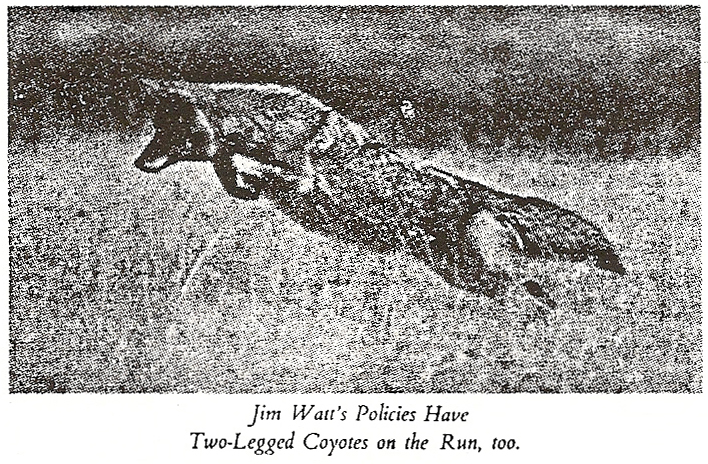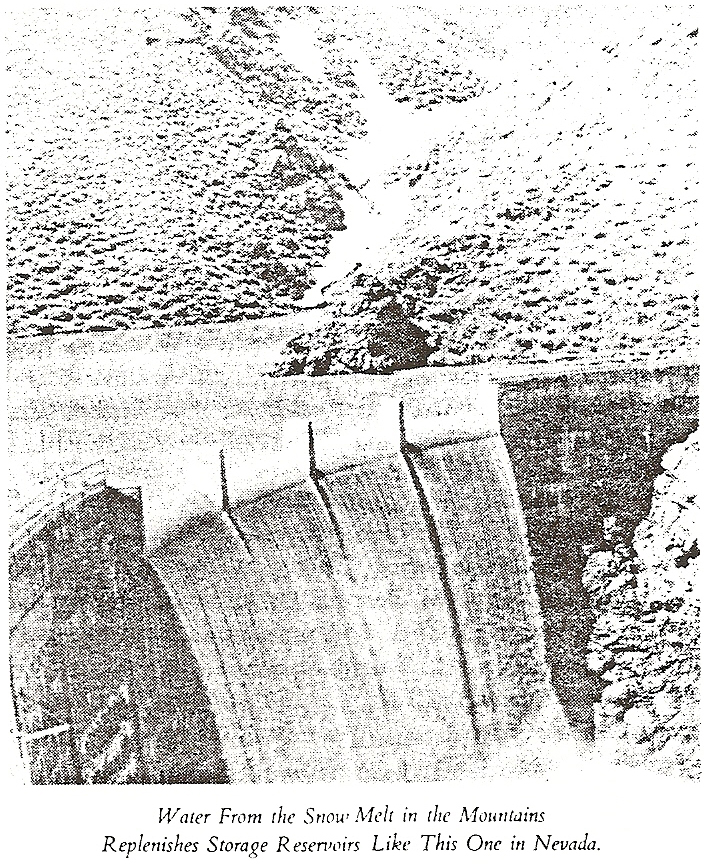
-
Cabinet-Level
coordinating position:
Watt has assumed enormous importance for overall Administration coordination of
resources and development policy from his stature as chairman of the President’s
new Cabinet Council on Natural Resources and the Environment. Through his close
personal friendship and long-standing collaboration with Environmental
Protection Administrator, Anne Gorsuch, and his rapport with Energy Secretary
Edwards, Watt has begun to emerge as one of the single most effective
“constituency-oriented: officials in the entire Administration. Edwards recently
submitted his Department’s new policy plan, National Energy Policy Plan-III to
Congress, which explicitly acknowledges the primary positive role of Watt’s
Interior Department in energy development. This follows the privately expressed
intent of the Reagan White House and Watt to quietly shift emphasis for national
energy policy out of the Carter-Schlesinger Energy Agency, back into Interior,
where many of the crucial functions historically originated.
 From his Cabinet Council
function, Watt has had strong policy shaping input into the heated fight looming
over Congressional review of the Clean Air Act, formally administered by
Gorsuch’s EPA. Watt’s role was also evident in the announcement by EPA
Administrator Gorsuch to hold hearings on possible repeal of the 1972 Nixon ban
on use of Compound 1080 to kill coyotes. Gorsuch cited sheep and cattle rancher
complaints of losses from the predators of “well in excess of $100 million.”
Interestingly , the original ban was the nefarious work of Nathanial Reed , who
was assistant Secretary of Interior under Nixon. Reed, who is in the forefront
of attacks on Watt, delivered this anti-Watt tirade in a recent speech to the
Sierra Club. This is not too surprising when we find that the same Reed was
responsible for the secret “deal” with the same Sierra Club in 1972 by which he
would secure a ban of all toxicants from the predator management program,
despite issuance of an official study, the Cain Report, which recommended
retention of Compound 1080.
From his Cabinet Council
function, Watt has had strong policy shaping input into the heated fight looming
over Congressional review of the Clean Air Act, formally administered by
Gorsuch’s EPA. Watt’s role was also evident in the announcement by EPA
Administrator Gorsuch to hold hearings on possible repeal of the 1972 Nixon ban
on use of Compound 1080 to kill coyotes. Gorsuch cited sheep and cattle rancher
complaints of losses from the predators of “well in excess of $100 million.”
Interestingly , the original ban was the nefarious work of Nathanial Reed , who
was assistant Secretary of Interior under Nixon. Reed, who is in the forefront
of attacks on Watt, delivered this anti-Watt tirade in a recent speech to the
Sierra Club. This is not too surprising when we find that the same Reed was
responsible for the secret “deal” with the same Sierra Club in 1972 by which he
would secure a ban of all toxicants from the predator management program,
despite issuance of an official study, the Cain Report, which recommended
retention of Compound 1080.
-
Took
teeth out of strip mining reclamation act: In an executive reorganization move
announced in late May, Watt announced that he was shifting responsibility for
enforcement of provisions of the Strip Mining Control and Reclamation Act of
1977 back to the relevant state agencies and out of federal hands, in effect. He
abolished the regional offices of the Office of Surface Mining, laid off 400 of
its enforcement personnel, closed two technical centers and announced a shift of
the office to a role of “assistance, advice and review.” The Carter era law and
it’s enforcement by zealous pro-environmentalist administrators has virtually
halted economic coal development in major areas of the country by restrictions
which, among others, required mined lands to be restored to “original contours,”
a prohibitively costly and often self-defeating means by which strip mining
efforts have been slowed.